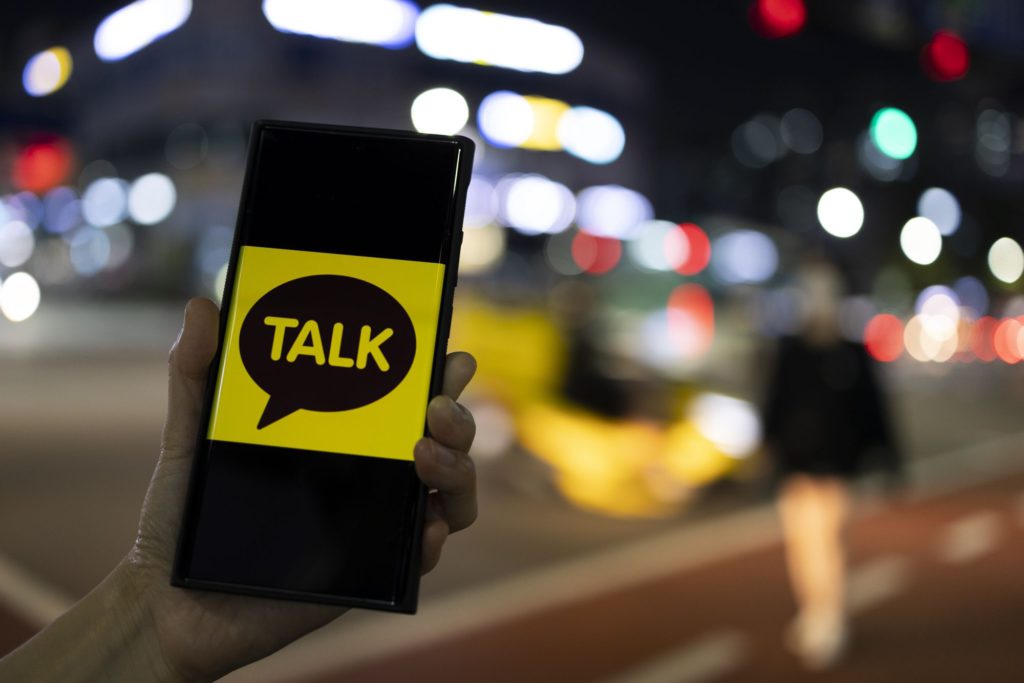Kakao Corp. shares tumbled after a weekend data-center fire disrupted service at the internet giant, intensifying scrutiny of its outsized importance in Korean life.
(Bloomberg) — Kakao Corp. shares tumbled after a weekend data-center fire disrupted service at the internet giant, intensifying scrutiny of its outsized importance in Korean life.
The company’s stock dropped as much as 9.5% to the lowest since May 2020 before closing 5.9% lower. It was one of the biggest drags on the benchmark Kospi on Monday, along with affiliates Kakaopay Corp. and KakaoBank Corp.
The blaze halted messaging, payment, gaming and other popular services for hours on Saturday. As of Monday morning, major services of KakaoTalk, Korea’s No. 1 messenger app, had been mostly restored, while mail and map services remained limited, Kakao said. KakaoBank said all of its services had returned to normal.
The incident drew further criticism of the nation’s dependence on the group, which has met with public complaints and regulatory crackdowns over its market dominance after rapid growth. Kakao’s stock is down nearly 60% this year while KakaoBank has shed more than 70% and Kakaopay has plunged 80%.
“We will do our best to improve until the services are fully recovered,” Kakao said Monday. The company expects limited impact from the disruption on its revenue, it said in a regulatory filing.
Kakao Group Shares Hit Record Lows in Seoul on Broker Downgrades
Government Reaction
South Korean President Yoon Suk Yeol on Sunday ordered the government to support recovery of operations and called for an investigation into the cause of the incident.
“Although the network is run by a private company, it’s practically national communications infrastructure,” he told reporters on Monday. “If a monopoly or an oligopoly causes market distortions and acts like national infrastructure, I think the government should take action,” he said.
Lawmakers from ruling and opposition parties slammed Kakao for the lack of a contingency plan and warned they could roll out new regulations, including revising the existing broadcasting communications development law. The presidential office said it would establish a cybersecurity taskforce led by Yoon’s national security director, as the Kakao incident amounted to “a matter of national security.”
“It has solely engaged in reckless business expansion such as M&As and IPOs,” said ruling party spokeswoman Yang Kumhee, referring to initial public offerings by several Kakao units in recent years. “If the principal of self-regulation leads to a loss of such, there is no choice but to reconsider the government’s management and supervision methods.”
Peer Moves
Peer Naver Corp., whose services were also affected by the fire, slipped in early trading before recovering to a small gain. SK Inc., which operates the data center where the fire occurred, slid 3.6%. SK said it expects limited impact on its sales from the fire.
Meanwhile, shares of NHN Corp., which operates data centers along with an online game service, briefly soared by an intraday daily record of 18% before closing 5.6% higher. KakaoTalk rival Telegram Messenger said in a tweet that it saw a jump in new users.
Some analysts see a negative impact on Kakao’s fourth-quarter earnings as it may have to compensate for service disruptions and as rivals gain traction. The incident is also seen worsening sentiment toward Kakao and its affiliates, which have high ownership among the nation’s day traders.
“The incident comes as public opinion is low on Kakao, as share prices have slumped since last year and some executives have sold shares at affiliates after going public,” said Ahn Jae-Min, an analyst at NH Investment & Securities Co. “We expect the short-term sentiment toward Kakao could be negative.”
(Updates with closing share-price moves, remarks by lawmakers, the presidential office’s move to create taskforce.)
More stories like this are available on bloomberg.com
©2022 Bloomberg L.P.











